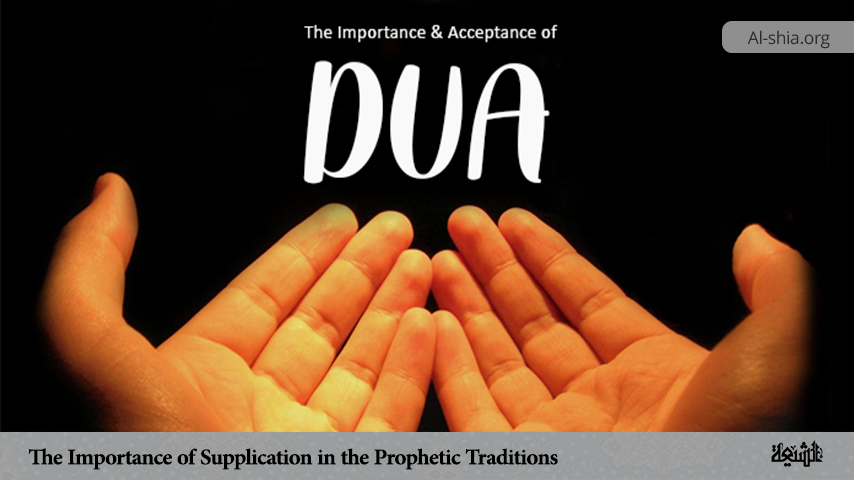One of several ways that Almighty Allah in the Qur’an and the Prophet in his many traditions introduce people to pray to their Creator is supplication. The article aims to present some of the traditions of the Prophet (PBUH&HP) on the importance of Supplication in Islam.
For the Prophet (PBUH&HP), du’a (Supplication) is so important. and many traditions transmitted from him show that. Some of his traditions will be mentioned below. For instance, he (PBUH&HP) said, “Du’a is the very worship.” [1]
Also, he (PBUH&HP) said, “Du’a is the key to mercy.” [2].
And “Du’a is the weapon of believers.” [3]
The benefits of Supplication (Du’a)
It is clear that such commands and traditions of the Prophet and His Progeny (PBUTH) clear that Du’a has many benefits. One of the benefits of supplication is to repel the determined, inevitable fate as mentioned in several traditions.
The Prophet (PBUH&HP) said, “Practice du’a too much because du’a repels fate.”
He also said, “Some man may be deprived of livelihood because of a sin that he commits, and nothing can repel the decree of fate except du’a, and nothing increases one’s old except piety.”[4]. Also, He (PBUH&HP) said, “Dutifulness to parents increases one’s old, lying decreases one’s livelihood, and du’a repels the decree of fate.”[5]. And “Du’a repels the decree of fate.” [6].
The Prophet (PBUH&HP) said: “Guard your properties by zakat, cure your sick ones by charity, and prepare du’a for afflictions.”[7]
He (PBUH&HP) added: “Nothing repels the decree of fate except du’a and nothing increases one’s old except piety.”[8]
And “Carefulness is not useful before the decree of fate, but du’a is useful before what has come down (of affliction) and what has not come down yet.” [9]
NOTES:
_____________________________________
[1] Nahj al-Fasahah, vol. 1 p. 323, quoted from Sunan of Abi Dawud, vol. 1 p. 333, Musnad of Ahmed bin Hanbal, vol. 4 p. 467.
[2] Nahj al-Fasahah, vol. 2 p. 323, quoted from Kanzul Ummal, vol. 2 p. 62.
[3] Mustadrak al-Hakim, vol. 1 p. 492.
[4] Musnad of Ahmed bin Hanbal, vol. 5 p. 277.
[5] At-Targheeb wet-Tarheeb, vol. 3 p. 596.
[6] Kanzul Ummal, vol. 3 p. 63.
[7] Nahj al-Fasahah, vol. 1 p. 324, quoted from al-Mu’jam al-Kabeer, vol. 1 p. 128.
[8] Mustadrak al-Hakim, vol. 1 p. 493.
[9] Shu’ab al-Eeman, vol. 2 p. 50.


















